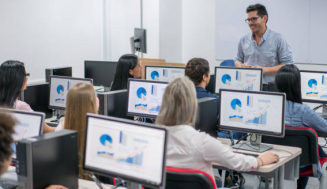BECE Past Questions & Answers – 2008(RME)
ESSAY
1 hour
SECTIONA RELIGION
Answeronequestion only from this section
1. (a) (b) Narrate thecreation storyaccordingto theQur‟an
Statethreeways in which humankind is useful to God
2.
(a) (b)
Explain threetypes of Christian prayer
Give five reasonswhyChristians pray.
3.
(a) (b)
Listfive types of sacrifices in theGhanaian traditional society
Give five advantages of sacrifices to theworshipper.
SECTIONB MORAL LIFE
Answeronequestion only fromthis section
4. (a) (b) State four behavioursconsidered to be decent inyourcommunity
Mention four advantagesof showingdecent behaviours at a sport festival
5.
(a) (b)
Listfivegood eatinghabits
Outline four dangers ofover-eating
6.
(a) (b)
Identifyfourcauses of immoral behaviour amongtheyouth
Mention four effects of indulgingin immoral behaviour
SECTIONC
SOCIAL LIFE
Answeronequestion only from this section
7. (a) Statefour responsibilities of a child to theparents.
(b) Givefour reasons whypeople avoid responsibilities.
8. (a) Outlinefour effects of idleness
(b) Mention four advantages of enjoyingholidaysandvacations
CLICK TO VIEW ANSWERS TO PART 2
ESSAY
1. (a) The creationstory according to theQur’an
(i) Accordingto theQuran,Allah created theuniversein 6 days
(ii) Allah said, “Be”,and itwas, as bydivine command
(iii) Themoon and sun were created byAllah togive light duringthe dayand night
(iv) He also created theheavens to demonstrate his power and majesty
(v) Humans were createdfrom themixtureof male and femaleseminal fluid orsecretions
(vi) Adam, theman, wascreated first. Eve, the womanwas created next
(vii) Afterfertilization, the resultingorganismis deposited in themother‟swomb as a seed.
(viii) From Adam, Eve first delivered aset oftwins
(ix) Thus humankind was created in stages
The formation stagesare „nutfa‟(sperm)→ „alaqa‟(clot) → „mudagha‟(flesh) →
„adaam‟(bones)→ dressingwith muscles
(x) Allah created allthings out of nothing, except his might, power,wisdom and goodness
(b) Ways inwhichhumankindisuseful to God
(i) Humans obeyand submitto thewillof God
(ii) Theyrepresent God onearth
(iii) Theypraiseand worshipGod
(iv) Theyexhibit the attributes of God for thesakeof allcreation
(v) Theyare formed in the imageof God,and arethereforehis children
(vi) Theymakeuse of allthatGod has created
(vii) Theycontinuethe creation process through reproduction and inventions
(viii) Theyhavedominion over / take careofallthat God has created
2. (a) Types ofChristianprayer
(i) Thanksgiving– Bythis typeof prayer, theyshowappreciation / gratitudeto God for what Hehas done forthem
(ii) Praise– Bythis prayer, theyexpress approvalandadmiration for what Godhas done and how Hedid it.
(iii) Worship– Christian express reverence andadoration for who God is (not what he has done)
(iv) Confession– In this prayer, Christians declarethewrongthings / sins theyhavedone and ask forforgiveness from God.
(v) Intercession– Christian prayforother peopleforvarious reasons bythis prayer.
(vi) Supplication/ Petition– Theyask God to do certain things forhim/ herbythis prayer.
(vii) Individual prayers – Aprayer that involves onlyoneperson andGod
(viii) Group prayers– Prayers offered byagroupof people forcertain purposes
(ix) Congregational prayers– Prayers offered bytheentirecongregation (people present at church) foraparticularreason.
(b) Reasons why Christianspray.
(i) To obeyGod‟scommandto prayat all times
(ii) To thank God forhis kindness and other blessings
(iii) To praise God for his mightyworks
(iv) To worship God forwhoHeis
(v) To request forGod‟sguidance, favour,protection, preservation, etc
(vi) To confess their sins andask for forgiveness
(vii) To purifytheir hearts andconsecrate themselves
(viii) To intercedeon behalf ofothers
(ix) To fellowship with God
(x) To gain spiritual strengthand vitality
3.
(a)
Types ofsacrifices intheGhanaiantraditionalsociety
Concerning FUNCTION
Thanksgivingsacrifice –Given to thank thegods / the deity
Purification sacrifice – offered to purifythe person/ people
Pacification sacrifice – offered to make/ restorepeacebetween the deityand the person /
people
Preventivesacrifice – offered to prevent a disaster/ calamity
Votive sacrifice– offered to fulfillavow made
Substitution sacrifice – offered to takethe placeof anotherthing/ person
Concerning ITEMUSED
Animal sacrifice– animals areused for thesacrifice
Human sacrifice– human beingsareused forthesacrifice
Blood sacrifice– the blood of an animal oraperson is used
Food/ Meal sacrifice – food is sacrificed to thedeity
Drink sacrifice– drink isoffered as a sacrifice
Concerning GIVER/PARTICIPANT
Individual Sacrifice – onlyoneperson is involved(makes the sacrifice forhim/herself)
Communal sacrifice – thesacrificeis madeforthewhole community
Concerning STATE
Tangiblesacrifice – asacrificemadewith physicalmaterial (can befeltor seen)
Intangiblesacrifice – asacrificewhich is not physical (cannot be seen)
(b)
Advantages ofsacrifices to theworshipper.
(i) It produces blessings
(ii) It enable onetogain victoryin anysituation
(iii) Itgives the opportunityto offer thanksgivingto God
(iv) It purifies the soul of theperson
(v) It facilitates peaceand harmonybetween the deityand the person
(vi) Itgive one an advantageover theotherin times ofbattle
(vii) It makes itpossible to vow and honourit
(viii) It serves asa channel forprotection andguidance (ix) It promotes unityand peacewithin the community (x) It inspires the person toguard againstevil
(xi) It strengthens the faith ofthe giver. (xii) It helps oneto succeed and prosper (xiii) It makes the person spirituallystrong
(xiv) It enables oneto show one‟scommitment to adeityorcourse.
4. (a) Behaviours consideredto bedecent in your community
(i) Greetingandrespecting people onemeets
(ii) Talkingpolitelyto everyone, whetherolderoryounger
(iii) Obeying and showingrespect fortheelderly
(iv) Dressingneatlyand modestly.
(v) Participatingin social activities such as sports and game
(vi) Takingpart in communallabour
(vii) Servingas peacemakers
(viii) Making gestures,giving and receivingitems withthe right hand only
(ix) Keepingone‟slitter(rubbish) on oneself tillthe onegets a rubbish bin to disposeofit. (x) Supportingthe poor andneedyin society
(xi) Carrying out various charitabledeeds
(b) Adva
(i) ntages ofshowingdecent behaviourat asports festival
It creates an atmosphere ofpeace, unityand harmony
(ii) It helps oneto makegood friends easily
(iii) It showsgood sportsmanship
(iv) A person‟sdecent behaviour can benoticed andrewarded
(v) It prevents insults, confrontations and fights.
(vi) It promotesreconciliation between two persons orgroups that werein conflict with
each other.
(vii) It creates ahigh reputation for the sporting groupto which onebelongs
(viii) It promotesfriendliness and cooperation amongthesporting groups
5. (a) Goodeating habits
(i) Waitingpatientlyfor food to be served
(ii) Prayingbeforeonestartseating
(iii) Washinghands with soap and waterbeforeeating
(iv) Askingfor an item to bepassed toyou, instead ofstanding/ stretchingacross the table forit
(v) Usingthecorrectcutleryin the proper waywheneating
(vi) Stirringto makehot foodcool, ratherthan blowingair onto it
(vii) Avoidingthe makingofnoises in themouth or throat while eating, as much as possible
(viii) Beingpolite whencommunicating(using„please‟,„thankyou‟and“I‟msorry/ Pardonme”)
(ix) Not talkingwhile thereisfood in one‟smouth
(x) Placingjustenough amounts (morsels) of food inone‟smouth at atime, instead of stuffing/ fillingit
(xi) Closingone‟smouth while chewing(or masticating)food
(xii) Turning awayfrom thefood and people andcoveringone‟smouth with apersonal
handkerchief, in caseonecoughs or sneezes
(xiii) Avoidingthe lickingof fingers and cutlery.
(xiv) Keepingone‟scutlerycrossed in one‟splate afterfinishing, to indicate onehas
finished eating.
(b) Dangers ofover-eating
(i) Insomnia / sleeplessness
(ii) Indigestion
(iii) Constipation
(iv) Becomingoverweight (v) Abdominal disorders (vi) Nausea and/or vomiting (vii) Feelinglazy
(viii) Bedwetting
(ix) Lack ofconcentration
(x) Heart Disease
(xi) Diabetes (type2)
6. (a) Causes ofimmoral behaviouramong theyouth
(i) Peer pressure (ii) Drugabuse (iii) Poverty
(iv) Unemployment
(v) Inadequateparentalguidance
(vi) Broken homes
(vii) Influencebythe media
(viii) Curiosity
(ix) Low self control
(x) Inadequate education on immoralityand its dangers
(xi) Advertisements of dangerous substances, suchasalcohol and cigarettes
(xii) Bad examples byparents, teachers and otherolderpeople. (xiii) Bad movies, books, magazines, websites, etc
(b) Effects ofindulging inimmoral behaviour
(i) Infections and diseases
(ii) Death
(iii) Loss ofrespect and dignity
(iv) Poverty
(v) Unemployment
(vi) Mob action /Lynching
(vii) Risk of arrest, prosecution and imprisonment
(viii) Broken homes
(ix) Low self esteem
(x) Termination of education (droppingout of school) (xi) Spiritual weakness
7. (a) Responsibilities ofa childto theparents.
(i) Obeyingparents
(ii) Respecting/ honouringparents (iii) Helpingwith householdchores (iv) Runningerrands forparents
(v) Beingtruthful to parents
(vi) Beinghardworking
(vii) Sharingideas concerning the familywith parents
(b) Reasons why people avoidresponsibilities.
(i) Sheer laziness
(ii) Lack ofappropriatetools / equipment
(iii) Lack of theneeded knowledgeor skills to carryout the responsibility
(iv) Negativeinfluencefrom peers / colleagues / friends / family, etc
(v) Fear ofbeing ridiculed/ mocked / laughed at
(vi) Pride/ arrogance
(vii) Lack ofcommitment
(viii) Tiredness /exhaustion
(ix) Bad intention ofwanting to proveapoint
(x) Lack of sufficient remuneration / reward
(xi) Wantingto go somewhereor dosomething else
(xii) Lack of self-belief / confidencein oneself
(xiii) Low self control
8. (a) Effects ofidleness
(i) Loss of skills and knowledge (ii) Poverty/ financial difficulty (iii) Dishonour /shame / disgrace (iv) Mocking/ ridicule
(v) Low productivity
(vi) Failureto achievetargets/ objectives
(vii) Social vices, such as swindling, briberyand corruption
(viii) Retrogression /regression (movingbackwards in an endeavour) (ix) Stagnation (not moving forward in anendeavour)
(b) Advantages ofenjoyingholidays andvacations
(i) Resting/ relaxation
(ii) Visiting/ spendingtimewith familyandfriends
(iii) Developingof talents / skill, such as playingamusical instrument, etc
(iv) Opportunities forsightseeing/ touringotherplaces
(v) Participation in socio-communal activities
(vi) Chanceof undertakingshort courses to upgradeoneself
(vii) Enjoying/ partakingin one‟shobbies / recreationalactivities
(viii) Opportunityto plan properlyforthefuture
(ix) Chanceto assist one‟sfamilyor friends
(x) Chanceof spendingmoretime with God





